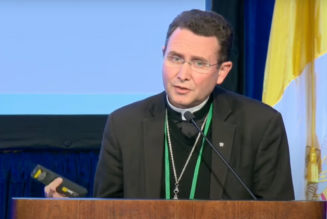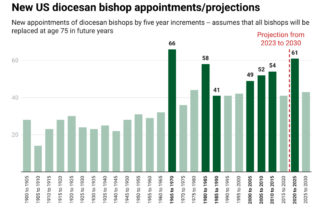
In a time when much of television fare fails to reflect Christian values, it’s encouraging to have shows that successfully present a world in which people of different backgrounds can cooperate.
Every Christian Star Trek fan recalls Stardate 4041.7. (That would be AD 2268 for planet-bound humans.) James Tiberius Kirk, valiant captain of the good ship Enterprise, in the midst of its five-year mission, came across planet 892-IV, a draconian 23rd-century version of the Roman Empire, complete with gladiators, senators and nefarious, back-stabbing politics. This empire also sponsored state executions of renegade slaves who practiced a pacifist religion of “total love and total brotherhood.”
Sound familiar?
The slaves imprisoned for practicing their religion were “sun worshipers.” As Mr. Spock, the ship’s science officer and Captain Kirk’s logical foil, points out, “It seems illogical for a sun worshiper to develop a philosophy of total brotherhood. Sun worship is usually a primitive superstitious religion.”
But then Lieutenant Uhura pipes up from her communications console to correct her superiors:
I’m afraid you have it all wrong, all of you. I’ve been monitoring some of their old-style radio waves; the Empire spokesman was trying to ridicule their religion, but he couldn’t. Well, don’t you understand? It’s not the sun up in the sky. It’s the Son of God.
My parents, very much non-Trekkers, asked me to repeat Uhura’s last line. When I did, they raised a surprised, Spock-like eyebrow. At that, Kirk addresses his bridge crew, “[They have both,] Christ and Caesar. Wouldn’t it be something to watch, to be a part of? To see it happen all over again?”
It wasn’t until years later that I realized the importance of those lines. This might seem only of minor interest to most people, but to a lover of science fiction, it is altogether remarkable. Science fiction writers commonly use religion as a theme but usually as a reference to violence, zealotry or primitive thinking. What Star Trek creator Gene Roddenberry did was cast a new light on Christianity in the genre. After that, I started concentrating on the Christian references in the original series and Star Trek’s later permutations.
After James Kirk faded from the scene, subsequent Star Trek captains were no longer the fire-phasers-first-ask-questions-later guys or gals. Instead, ethics and personal responsibility came to the forefront. In Star Trek Voyager (1995-2001) Captain Kathryn Janeway sought advice from a hologram of Leonardo da Vinci, who urged her to seek out God’s assistance in prayer. “When one’s imagination cannot provide an answer,” Leonardo says, “one must seek out a greater imagination.” The wise hologram then suggests that the two retire to the chapel at the Monastery of Santa Croce. “Come with me, Katarina,” he says, taking Janeway’s hand. “We will wake the abbot, visit the chapel, and appeal to God.”
The ultimate Star Trek theological reference came in the fifth Star Trek movie, The Final Frontier (Paramount). On Stardate 8454.130, a thoroughly illogical Vulcan, Sybok, a half-brother to the more familiar Spock, has convinced his followers that God exists on an as-yet undiscovered planet at the center of the Milky Way galaxy. Suffice it to say the entity imprisoned on that planet is not God but an impostor. Captain Kirk realizes the incongruity of “God’s” desire to commandeer his ship. After all, what would God need with a starship? When the poseur attacks and punishes Kirk, Sybok realizes that the real God would never punish his children.
In a time when much of television fare fails to reflect Christian values, it’s encouraging to have shows that successfully present a world in which people of different values, backgrounds and perceptions can cooperate. In the Star Trek universe each species offers its uniqueness as a gift to the others and learns to cooperate, creating an infinite diversity in infinite combination.
Good science fiction isn’t about aliens and ray guns and exploding planets. These are mere trappings, albeit fun and clever ones. But a deeper purpose of science fiction is to comment on the present, and it is gratifying that Star Trek has taken Catholic concerns to both the small and large screens, giving many generations of fans an opportunity to consider what they think is important in their lives: life, peace, duty, ethics. May it live long and prosper.
Join Our Telegram Group : Salvation & Prosperity









